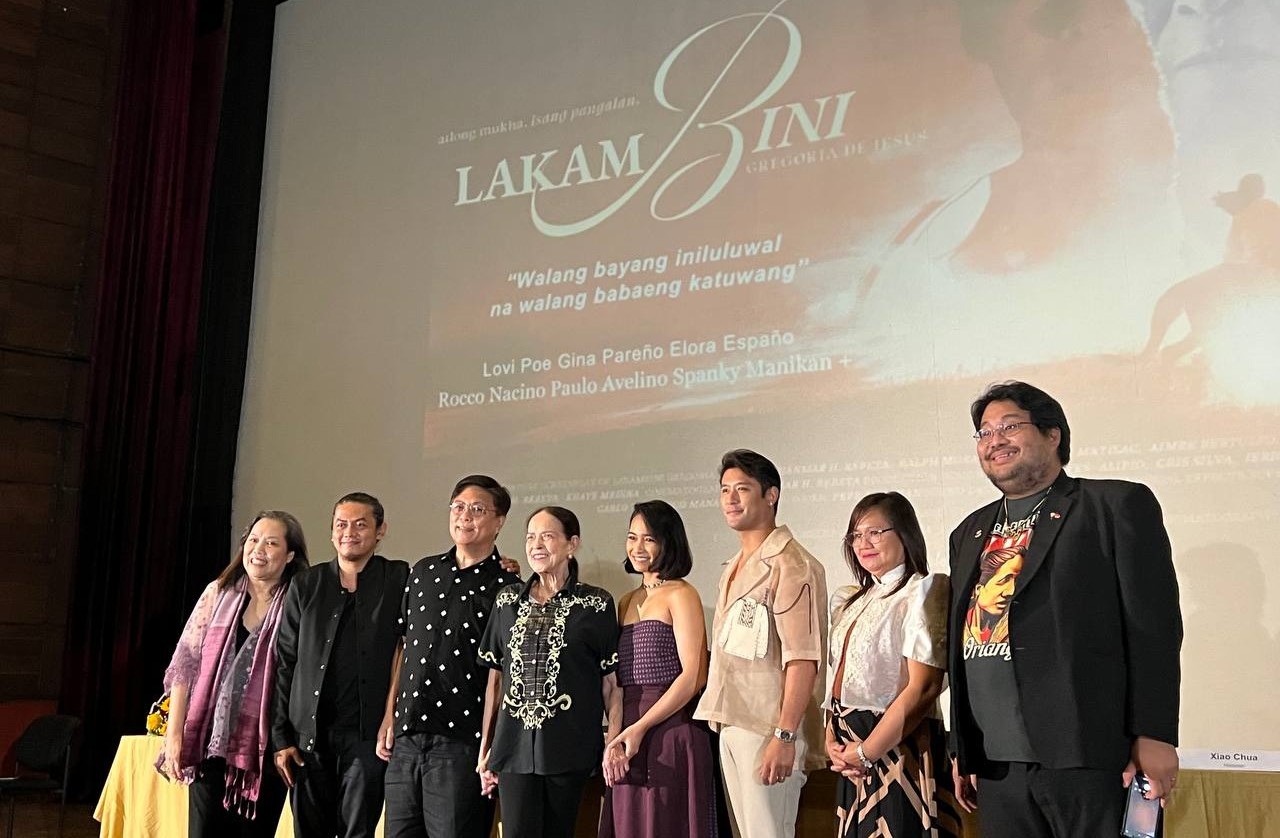The National Historical Commission of the Philippines (NHCP), in partnership with Pelikulove, hosted a special press conference and advance screening of Lakambini: Gregoria De Jesus at the UP Film Institute — a fitting venue for a film that celebrates both the power of storytelling and the preservation of history. I was among the invited members of the media to witness this remarkable event that honored the life and legacy of the “Lakambini ng Katipunan.”
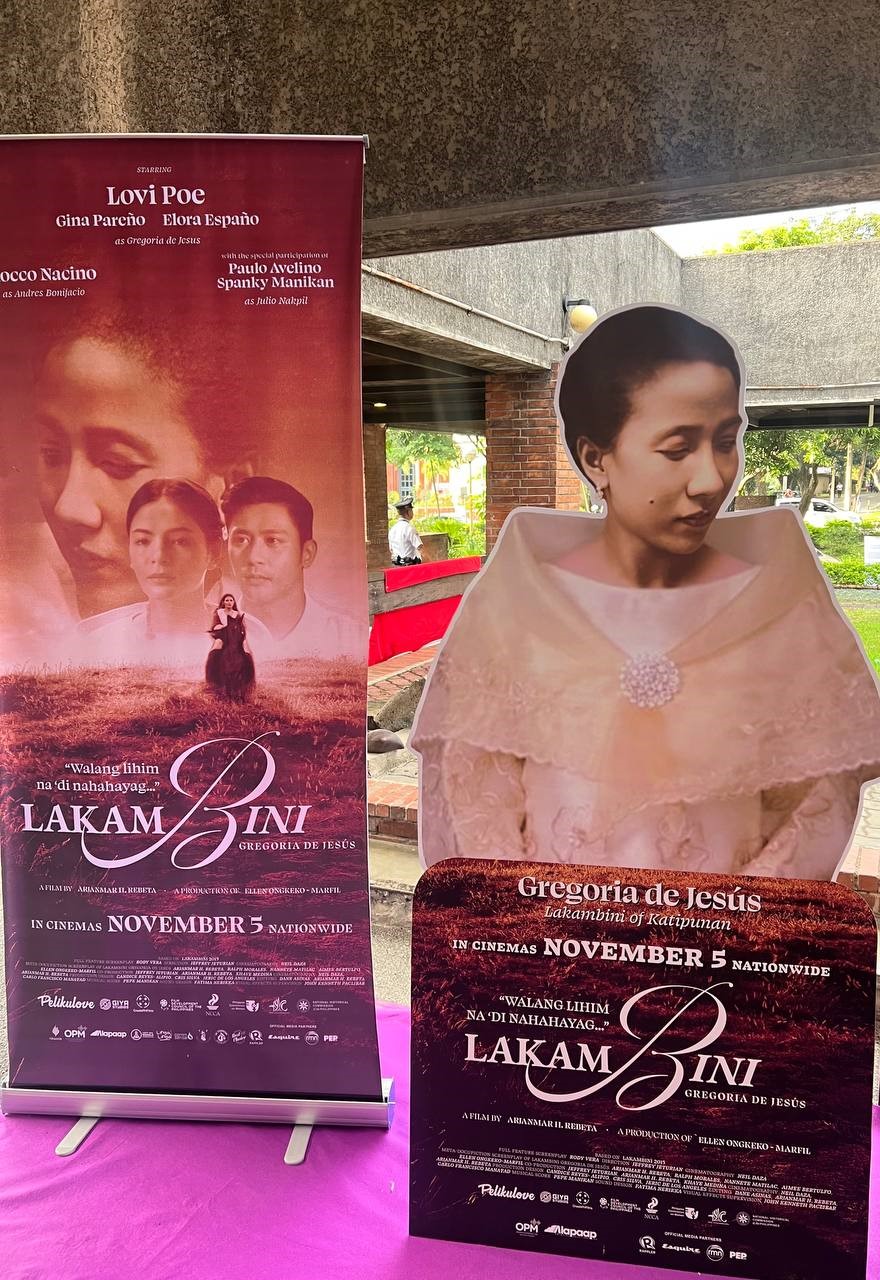
Gregoria de Jesus, born on May 9, 1875, and passed away on March 15, 1943, was the wife and widow of Katipunan founder Andres Bonifacio. Beyond her role as Bonifacio’s partner, she was a revolutionary in her own right — a woman of courage, intellect, and patriotism whose contributions helped shape the nation’s struggle for independence.
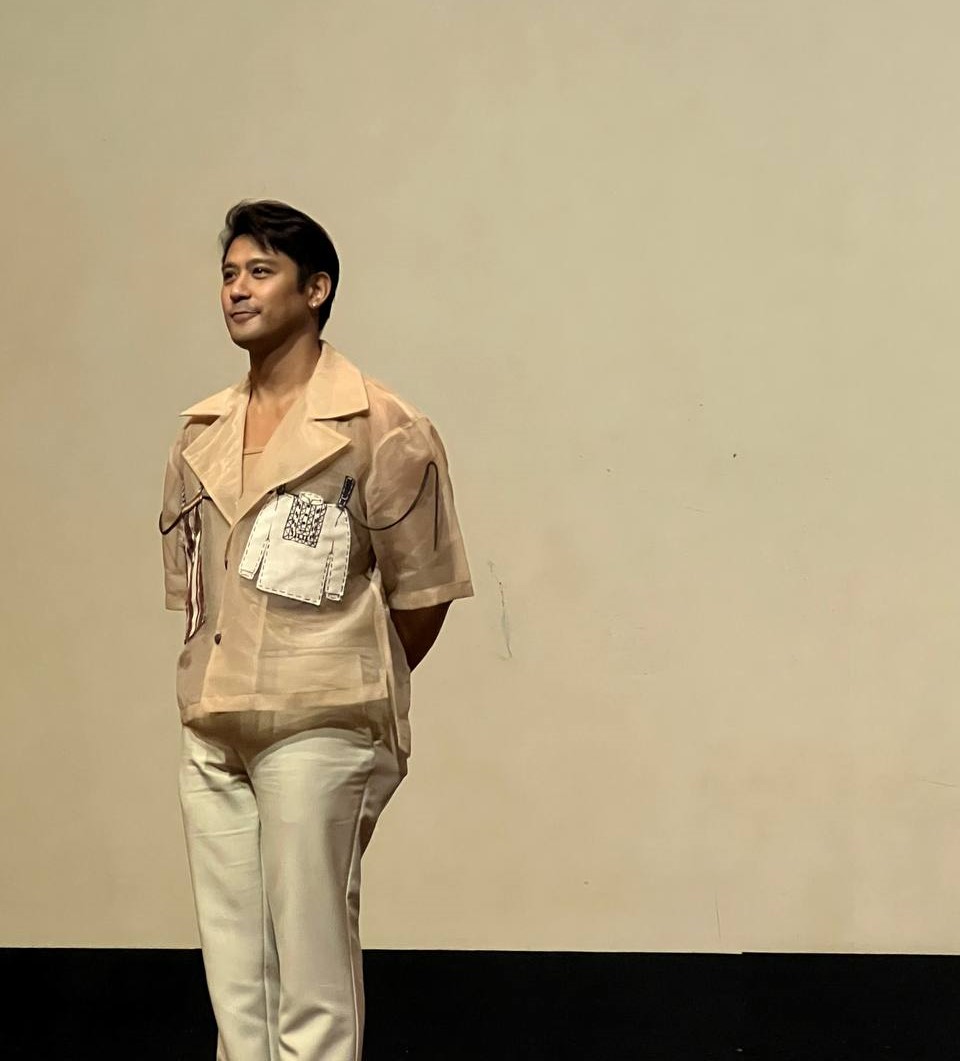
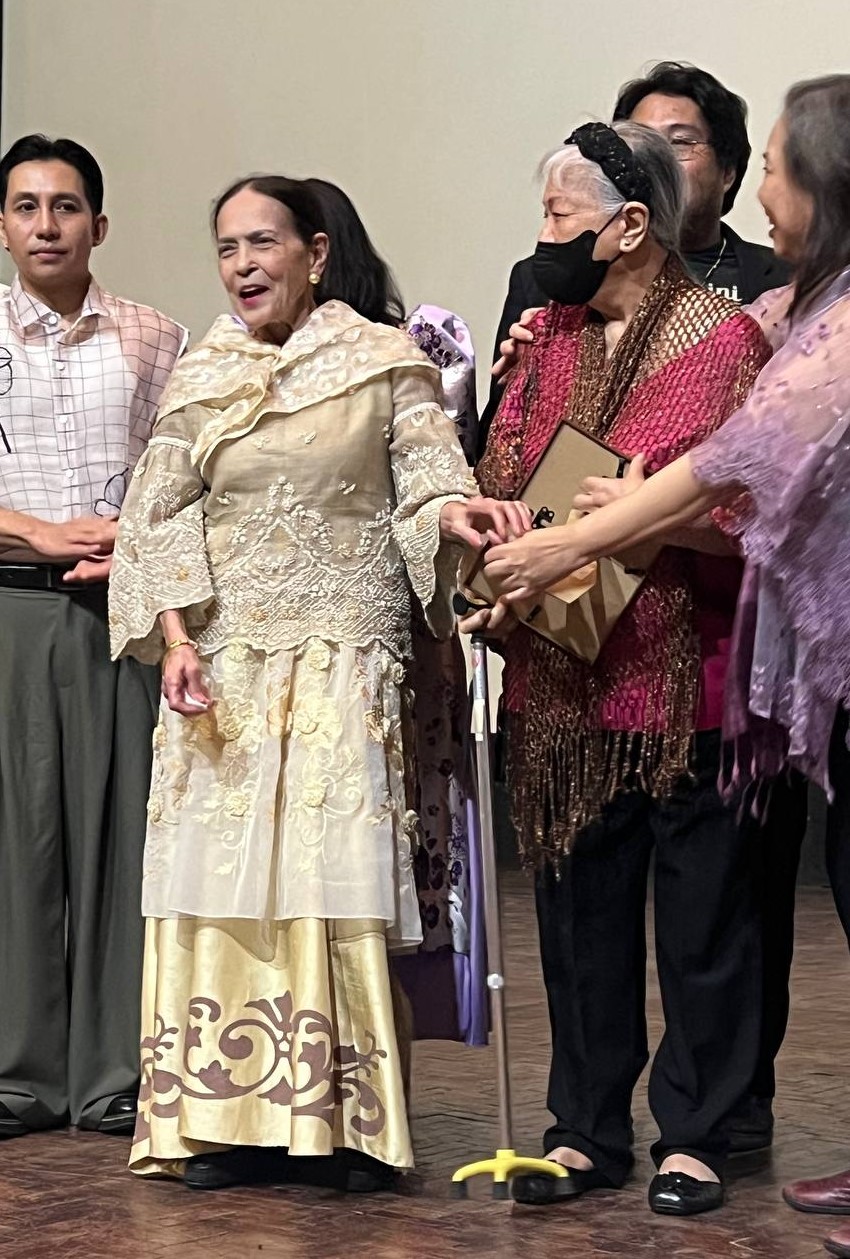
The purple carpet event gathered the film’s talented cast and creative team. Rocco Nacino stars as Andres Bonifacio, while Gina Pareño portrays the older Gregoria de Jesus. The younger Gregoria is played by Elora Españo, who shares the role with Lovi Poe.
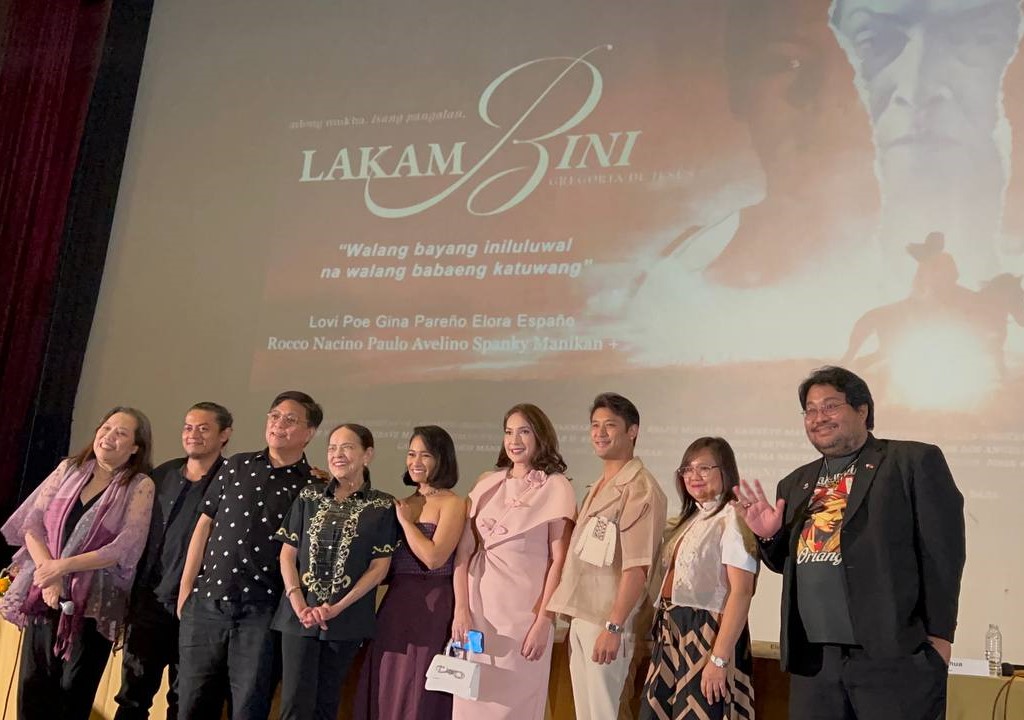
Producers Ellen Ongkeko-Marfil, along with Jeffrey Jeturian and Khaye Medina, attended the press conference to share insights about the film’s long and inspiring journey. Also present were director Arjanmar Rebeta and historian Dr. Xiao Chua, who served as one of the film’s historical consultants.
According to them, Lakambini offers a poetic and powerful retelling of Gregoria de Jesus’s story — one that goes beyond her identity as Bonifacio’s wife, exploring her personal struggles, resilience, and enduring love amid the turmoil of revolution.
When asked why the film took 12 years to complete, Chief Executive Producer Ellen Ongkeko-Marfil shared that the project faced many challenges — from financial and creative struggles to political and gender-related obstacles.
“Many reasons, from financial to political to creative difficulties; that is why one of our loglines is that her unfinished quest for justice mirrors our own struggle to reclaim the legacy of a heroine,” Ongkeko-Marfil explained. “2025 marks 128 years since the trial and death of the Katipunan — so, in a way, 12 years is actually short.”
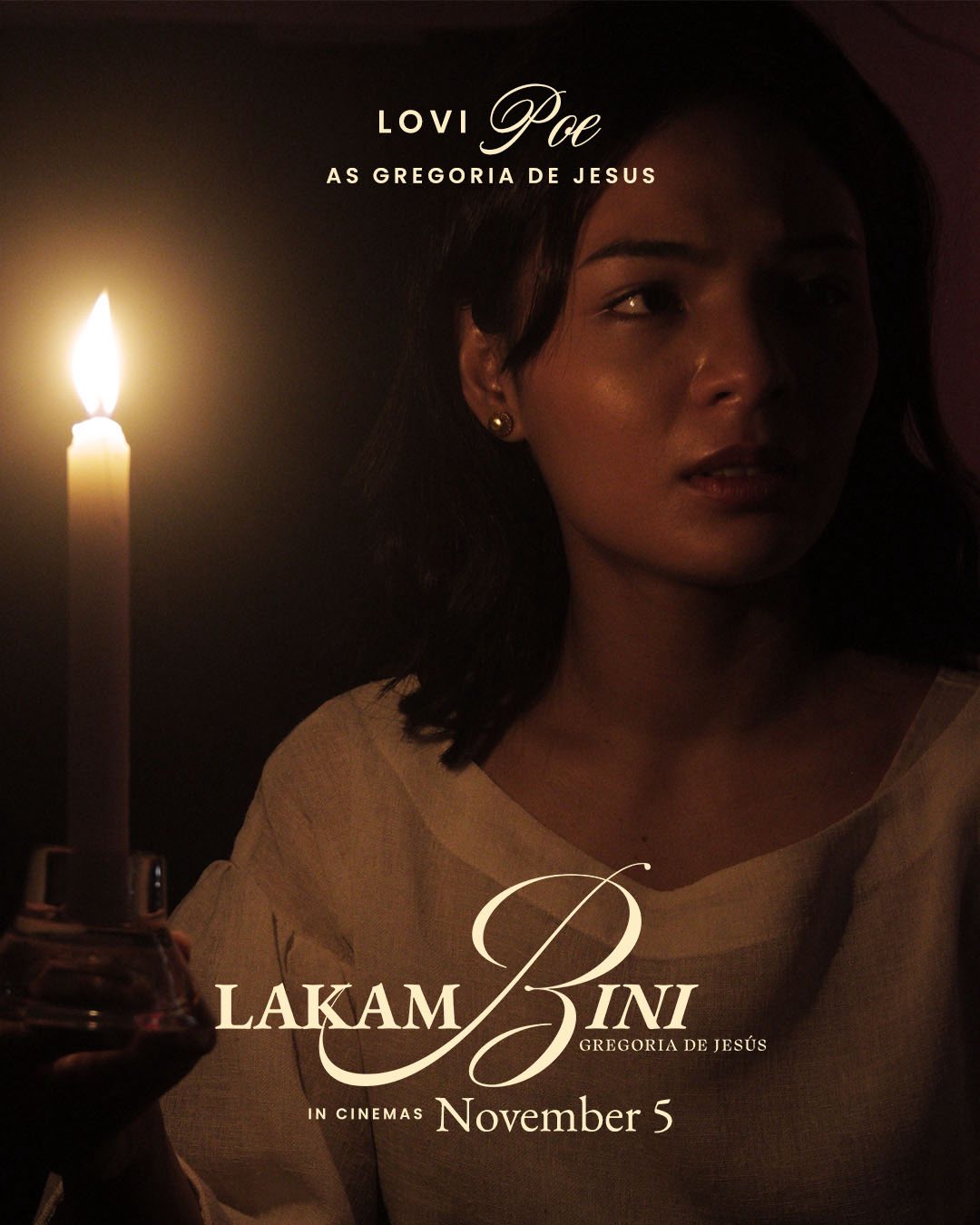
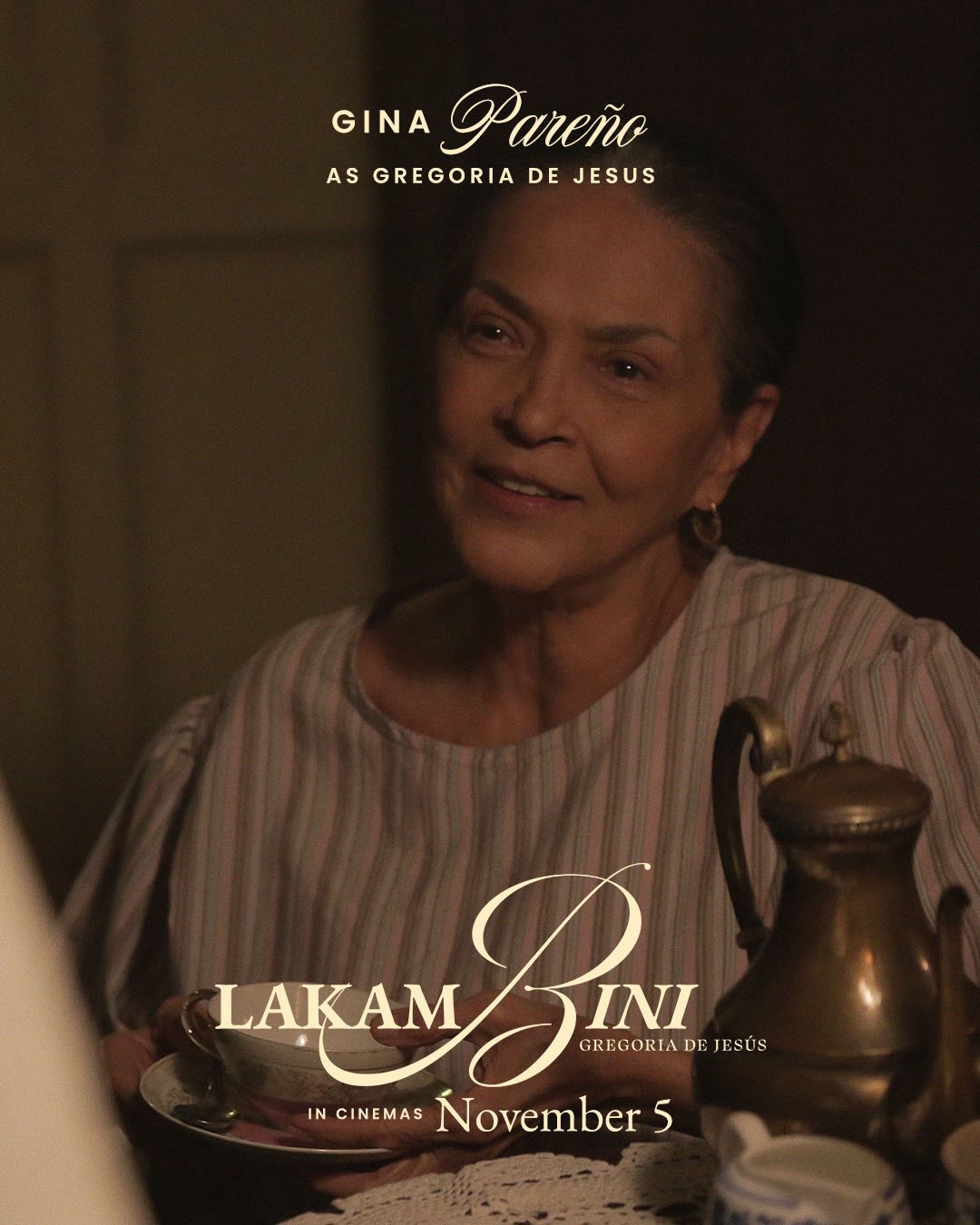
She also reflected on how Gregoria de Jesus’s story has often been overlooked. “Some reasons are gender-based, and some because she is not well-known or acknowledged, often remembered only as Mrs. Andres Bonifacio. Perhaps some delays were also from my own shortcomings as a producer,” she said. “But here it is now, and people are asking when it will have a release.”
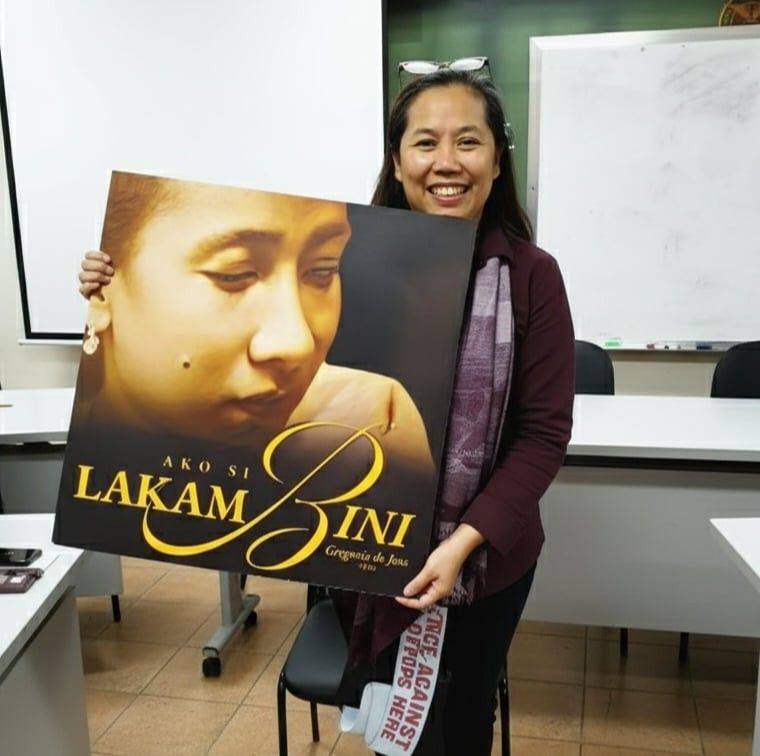
Ongkeko-Marfil noted that the film’s release marks the beginning of a long campaign to revive public awareness of Gregoria de Jesus, who has had only about 2,000 online searches in the past decade. “That’s why we need everyone’s help,” she added.
She expressed gratitude to the cast and crew who helped bring Lakambini to life. “In 2024, I realized 2025 was her 150th birth anniversary, so I just had to get it done, no matter what,” she shared. “Lovi Poe was out of the country when we resumed with Direk Arjan, so we needed two more shooting days for the young Oriang. Thankfully, we found Elora Españo, who was as awesome as our principal actresses. She gave Oriang that ‘every girl’ feel — a perfect match to Rocco Nacino’s earnest Andres Bonifacio.”
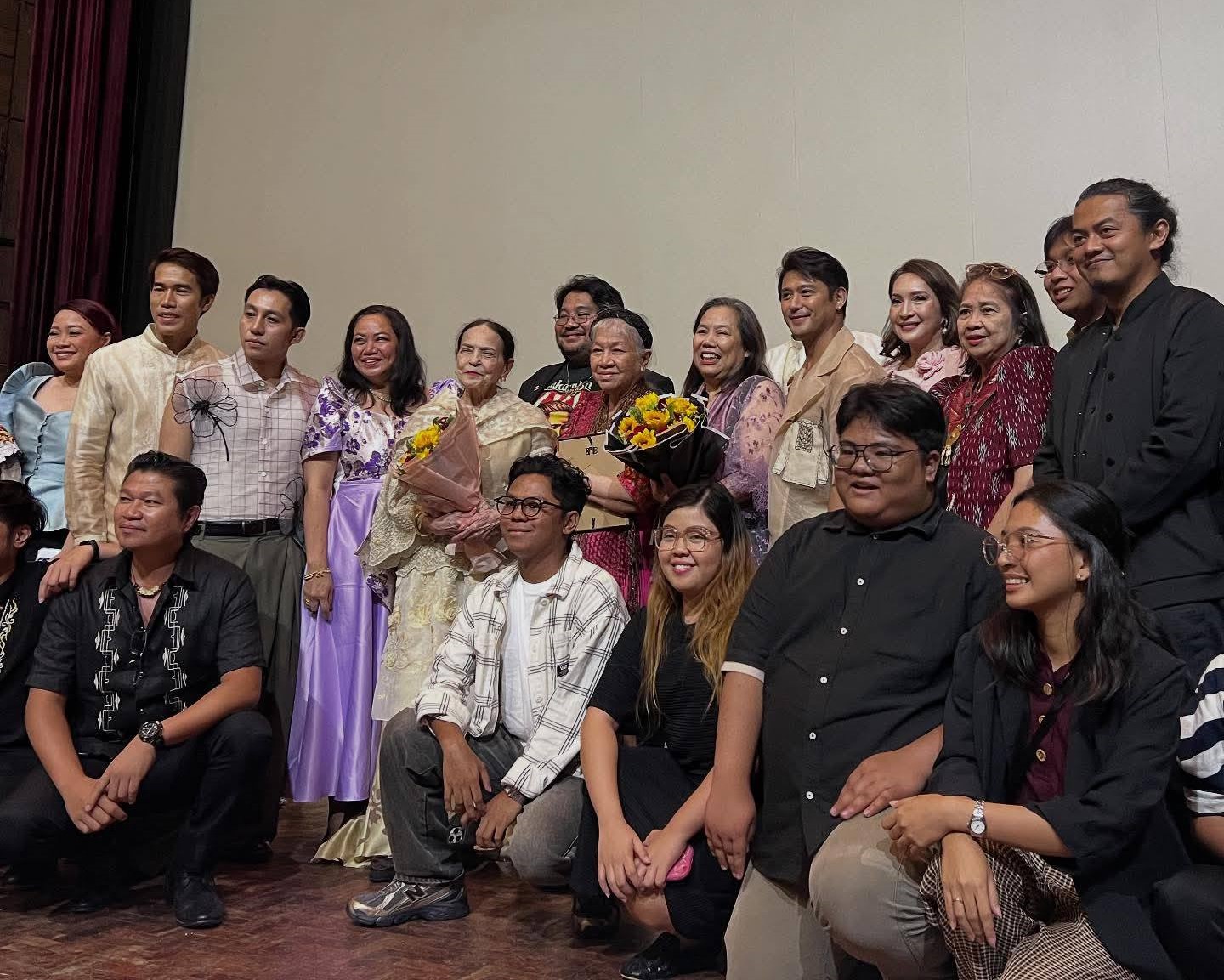
“Lovi, Gina, and Elora — I can only thank the universe for this blessing,” Ongkeko-Marfil said. “Each of them gives a different side to our heroine.”
The premiere was also graced by veteran actors Allan Paule and Susan Africa, the wife of the late Spanky Manikan, who portrays the older Julio Nakpil while Paulo Avelino plays the younger version.
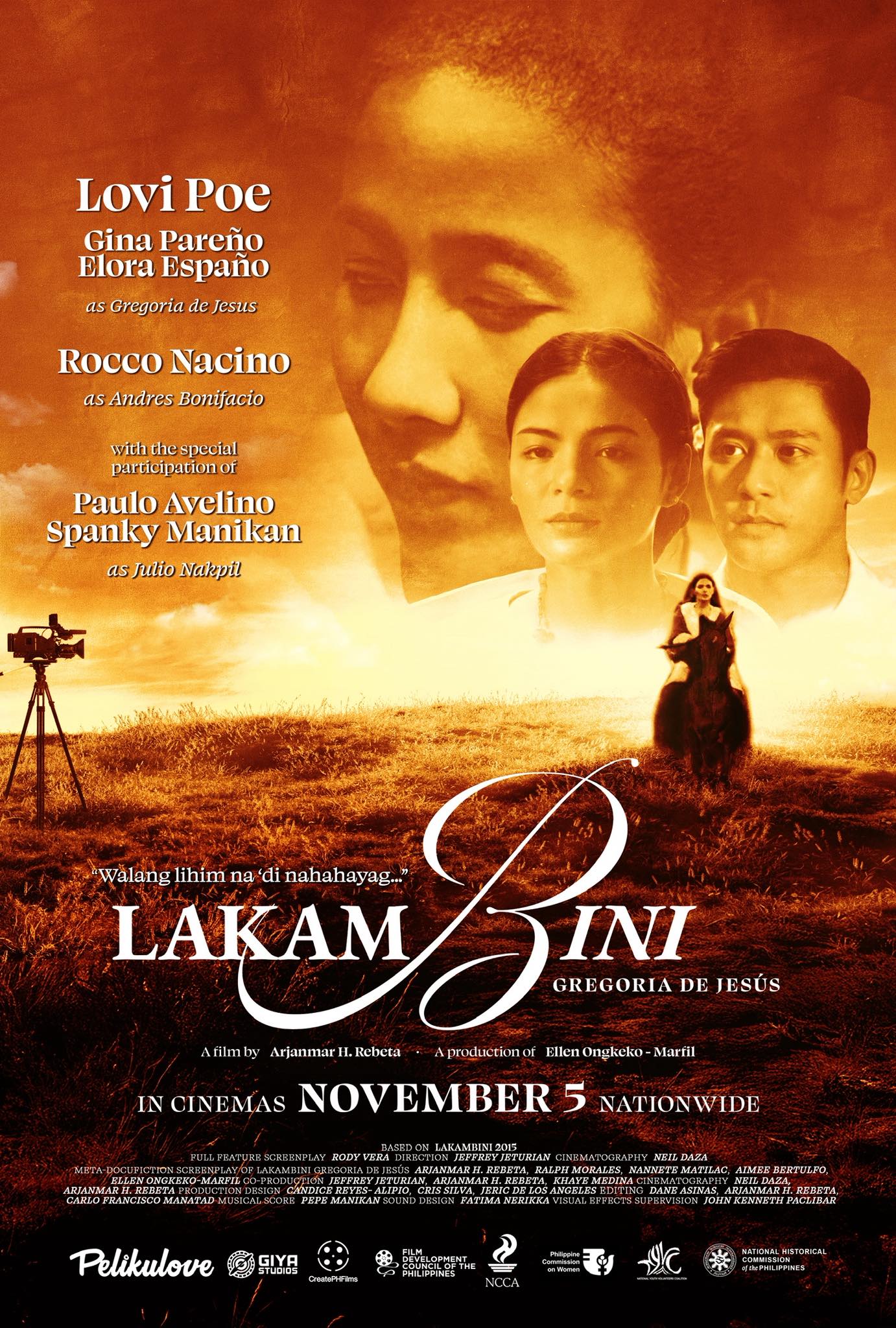
After nearly 12 years in the making, Lakambini: Gregoria De Jesus will finally be seen in cinemas on November 5, 2025. The film stands as a powerful testament to perseverance, artistry, and the enduring spirit of one of the Philippines’ most remarkable women — a heroine whose story, at last, claims its rightful place in the nation’s history.
As a member of the audience, I can only hope and look forward to seeing more historical movies being made, watched, and praised — especially those with female lead heroes like Gregoria de Jesus and other women who bravely fought for our country’s freedom.
